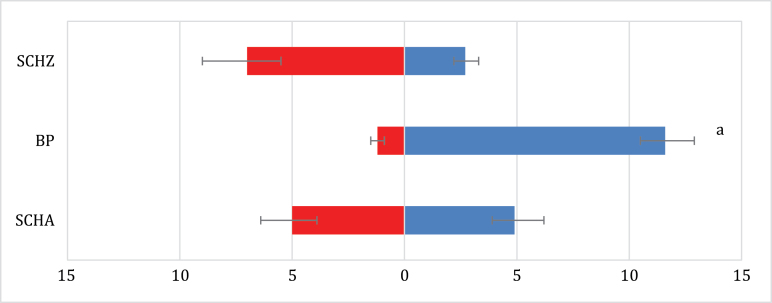Fig. 1.
Longitudinal risks of receiving a diagnosis of schizophrenia, schizoaffective disorder, and bipolar disorder after having first received an initial diagnosis of obsessive-compulsive disorder (OCD, right side, in blue), and vice versa (left side, in red). Analyses are limited to ICD-10 diagnoses for all disorders to ensure equal follow-up periods. Values represent risk ratios (RRs) and CIs. SCHZ, schizophrenia; BP, bipolar disorder; SCHZA, schizoaffective disorder. aThe risk of receiving a diagnosis of bipolar disorder after an initial diagnosis of OCD was substantially reduced, but not eliminated, when the use of selective serotonin reuptake inhibitors (but not other types of antidepressants) was controlled for in the analyses (adjusted RR = 8.8, CI = 7.5–10.2). Also see supplementary table 3.

